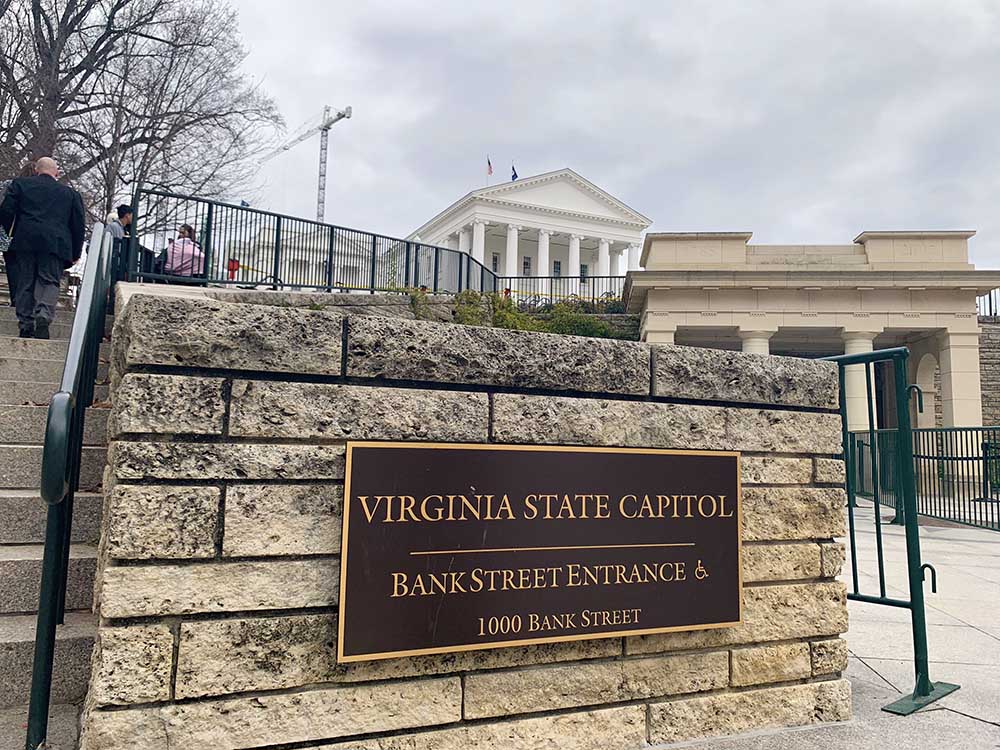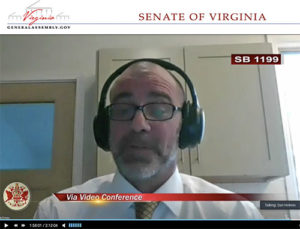
The last six months has been a whirlwind of legislative action. The 2020 special session extended into mid-October, creating a mad scramble at its conclusion to prepare for the 2021 regular session. PEC was busy drafting bills and budget amendments, finding sponsors and having the conversations necessary to set up our initiatives for success before the new session began on January 13. The 2021 regular session was eventually extended into a special session that concluded on March 1. Throughout, there were countless virtual meetings with partners and legislators and virtual testimony to relevant house and senate committees. After all was said and done, I am pleased to report on a largely successful session.
The Budget
The introduced budget for FY2022 provided a strong foundation, including money for trails, food programs, water quality and more. Building from that foundation, we focused on two items.
The first was an amendment we worked on with Senator McClellan’s office to fund important surveys of underrepresented historic resources throughout the state, ensuring that untold histories of African American and indigenous people are identified and documented in the state database. This effort was ultimately successful. The second item was an amendment offered by Delegate Gooditis to provide an additional $2 million for the Farmland Preservation Fund, a measure she champions every year. While not fully funded, her dedication paid off this session. The final budget included an additional $750,000, bringing the fund total to $1 million supporting local Purchase of Development Rights programs.
While still short of what’s needed, additional funding was allocated to the Agricultural BMP Cost-Share Program (Ag BMPs), bringing its total to $65 million. This funding is critical for meeting our pollution reduction goals for the Chesapeake Bay, supporting such measures as livestock exclusion fencing and stream-side plantings. The legislature also allocated $10 million for trails; accompanying language setting up project ranking criteria gives us hope this is not just a one-off funding measure.
But not all the news was good. We were disappointed with the General Assembly’s new “earmark” approach to the Virginia Land Conservation Foundation (VLCF), Virginia’s primary conservation grant vehicle. By directing VLCF funding toward specific projects, legislators damage the program‘s integrity and insert politics into conservation funding decisions.
The Legislation
Legislative outcomes are also largely positive, with many of our initiatives sitting on the governor’s desk, awaiting signature.

We are very pleased that our priority land conservation legislation, HB1760 (Webert/ Gooditis) and SB1199 (Petersen), will soon be signed into law. This legislation preserves the integrity of existing easements by ensuring that disputes over terms are decided in favor of the conservation purpose of the easement.
- 3/30/21 Joint Statement: Conservation Community Celebrates Passage of Bipartisan Easement Legislation
On energy, we continued to press for utility reform along with partners, supporting several pieces of legislation related to ratepayers and utility oversight by the State Corporation Commission. This suite of bills, including HB1914 (Helmer), HB2200 (Jones/ Ware), and HB1984 (Hudson), made it across to the Senate Commerce and Labor Committee, where they suffered the usual fate of good legislation before that body—they were summarily killed. PEC’s Board chair summed it up best in a recent Richmond Times-Dispatch letter, when he said, “Blanket support of Dominion cannot, according to any view of public benefit, possibly be considered responsible, sensible lawmaking.” On a brighter note, HB1925 (Kilgore) passed, providing incentives for conversion of brownfields and reclaimed minelands to solar.
Along with increased funding for Ag BMPs we were pleased to see the passage of HB1763 (Wilt) and SB1162 (Hanger). Some farmers are not able to avail themselves of the cost-share program for religious reasons. This bill allows the use of state tax credits for the same purpose, which should increase participation in the effort to restore water quality.
There was also some good news on local food and sustainable habitat. With the passage of SB1188 (Hashmi), the Virginia Agriculture Food Assistance Program and Fund is on its way to being created. This legislation encourages Virginia farmers and food producers to donate, sell, or otherwise provide agriculture products to charitable food assistance organizations. It also creates a fund that provides money to food assistance charities to reimburse farmers or food producers for costs associated with harvesting, processing, packaging, or transporting agricultural products that are donated. On the habitat front, HJ527 (Bulova) passed, creating a stakeholder study to develop recommendations for reducing the sale and use of invasive plant species in the commonwealth.
On the land use front, HB2213 (Guzman), which authorizes a study of Virginia’s gold mining regulations to ensure they are protective of the public health and the environment, passed, albeit without a temporary moratorium. While the focus is on a potential mine in Buckingham, the same gold-pyrite belt runs through a large swath of the Piedmont, including Orange, Culpeper and Fauquier counties.
Electric vehicles dominated transportation discussions, with four bills passing. Included in this package was clean car standards, a rebate program, increased charging infrastructure and grants to convert school buses to electric. The Virginia Bicycle Safety Act from Delegate Hurst also passed. By requiring safe passing distances for motorized vehicles around bicycles and allowing for two riders abreast, this legislation will greatly aid in reducing bike-vehicle incidents. Lastly, and based on discussions during the session, we are hopeful a stakeholder review of the state’s permitting process for utility-scale solar projects will take place. That review would look for ways to reduce, and avoid where possible, impacts on agricultural, forestal and natural resources.
Conclusion
As you may have guessed, this short overview only scratches the surface of all that occurred. Please reach out to me at dholmes@pecva.org if you have any questions on legislative or budget measures that were not included here or seek additional clarity on any of the items in this article. We encourage you to thank those legislators who championed and voted for these and other conservations initiatives.
Please visit pecva.org/richmond for more information.
This article was written by PEC Director of State Policy Dan Holmes and appeared in The Piedmont Environmental Council’s spring 2021 member newsletter, The Piedmont View. If you’d like to become a PEC member or renew your membership, please visit pecva.org/join.
